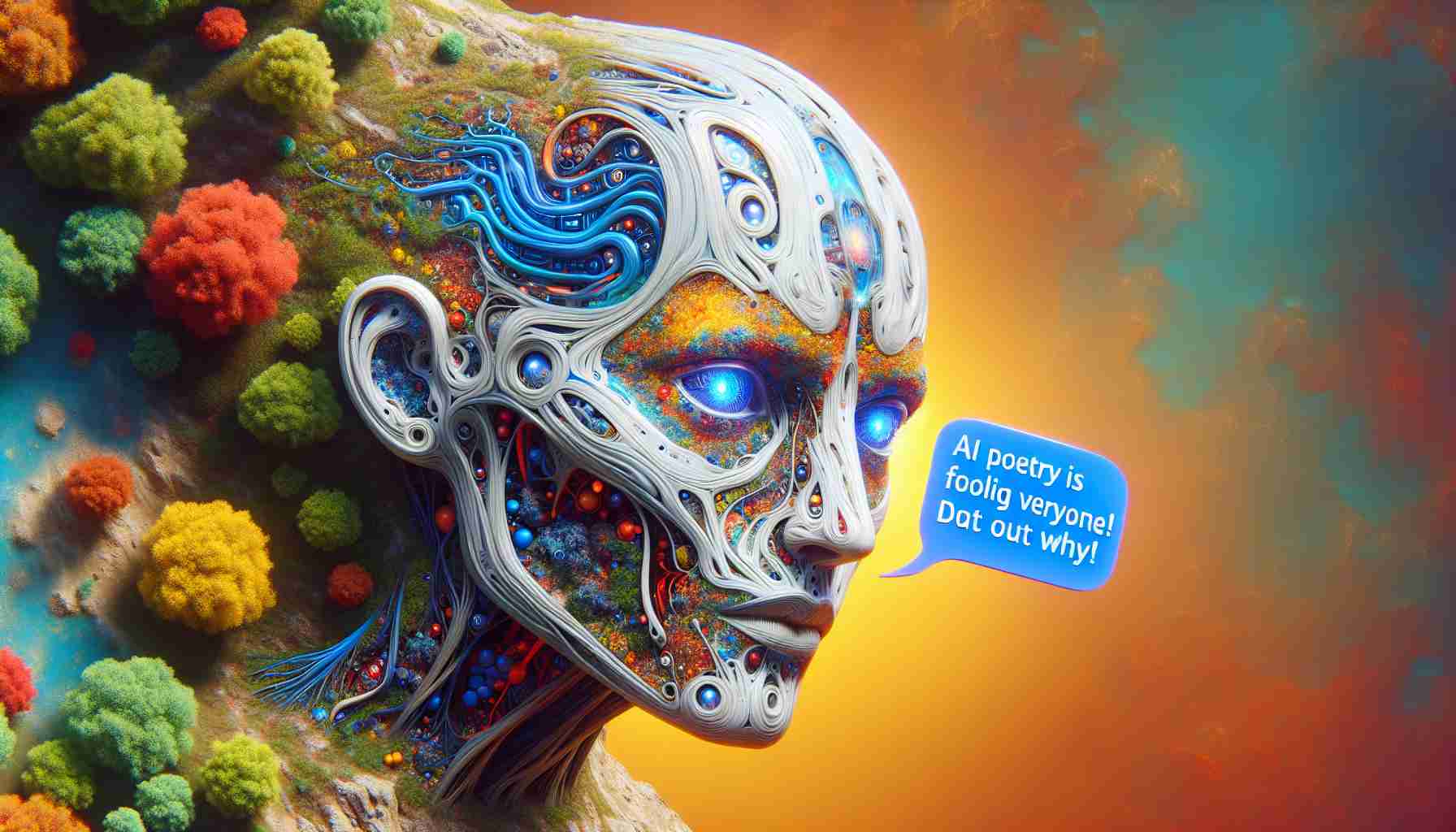Challenging the Line Between Man and Machine
As the field of artificial intelligence matures, one intriguing question arises: can we still tell AI-generated poetry from the works of human poets? A recent study explored this very phenomenon by testing non-expert readers’ abilities to identify the authorship of various poems.
The results were quite startling. Participants in the study struggled significantly, achieving an accuracy rate of only 46.6% when attempting to discern which poems were crafted by AI. This figure is strikingly below what would be expected by random guessing. Moreover, it was discovered that readers often misclassified AI-generated poetry as human work more frequently than they correctly identified actual human creations.
Interestingly, it seems that readers responded more favorably to AI poetry in certain aspects, such as rhythm and beauty, suggesting a preference for the apparent simplicity of AI-generated verse. This might indicate that non-expert readers find AI compositions easier to grasp, leading to misinterpretations of more complex human poetry as disorganized or lacking coherence.
These findings underline a significant challenge in our current approach to evaluating poetry, as well as the growing sophistication of AI-generated content. The blurring lines may redefine how we appreciate and understand poetry in the digital age, posing new questions about creativity and authorship.
Can AI Poetry Fool Us? The Surprising Results of New Research
Challenging the Line Between Man and Machine
As artificial intelligence (AI) technology continues to evolve, it raises intriguing questions about authorship and creativity, particularly in the realm of poetry. A recent study sheds light on the growing sophistication of AI-generated poetry and the challenges it presents to human readers.
The Study’s Findings
In a trial involving non-expert readers, participants were tasked with identifying the authorship of various poems, some written by AI and others by human poets. The results were revealing: the accuracy rate was only 46.6%, significantly lower than what one would expect from random guessing. This indicates that many readers find it increasingly challenging to distinguish between human and AI-generated work.
Moreover, the study found that participants more frequently misidentified AI-generated poetry as having human authorship, suggesting that the style or structure of AI poetry may resonate more effectively with a general audience. This could imply that non-expert readers might perceive AI poetry as simpler or more accessible, potentially leading to a misunderstanding of more complex human creations, which may be viewed as disordered.
Implications for Poetry Evaluation
The implications of these findings extend beyond just the study itself. With the rise of AI in creative fields, there is a pressing need to reevaluate how we perceive and critique poetry. If readers cannot reliably tell the difference between AI and human poetry, what does this mean for our understanding of creativity and authorship? It challenges traditional notions of literary critique and may necessitate new frameworks for appreciating poetry in an age where machines can produce increasingly sophisticated work.
Pros and Cons of AI-Generated Poetry
When evaluating AI-generated poetry, there are several pros and cons to consider:
Pros:
– Accessibility: AI poetry can be created quickly, making poetry more accessible to audiences who may not engage with traditional poetry.
– Innovation: AI can introduce new styles and forms, pushing the boundaries of poetic expression.
– Simplicity: Many readers may find AI poetry easier to digest, appealing to contemporary tastes.
Cons:
– Authenticity: The emotional depth and personal experiences often found in human poetry might be lacking in AI compositions.
– Creativity Concerns: The reliance on AI might stunt personal expression and creativity among budding poets.
– Confusion for Readers: The difficulty in distinguishing between AI and human poetry raises questions about the integrity of literary evaluation.
Future Trends and Insights
As we progress further into the digital age, the trend of AI-generated content will likely continue to rise. Predictions for the future suggest that AI will become an integral tool in both creative writing and literary analysis. It may redefine how poetry is created, consumed, and understood, blurring the lines of authorship and originality.
Conclusion
The challenge of discerning AI-generated poetry from that of human poets highlights a critical juncture in the evolution of literature. As technology advances, so too does the need for new frameworks and discussions surrounding creativity, authorship, and our relationship with art. How we adapt to these changes will shape the future of poetry and artistry in the 21st century.
For those intrigued by the growing impact of artificial intelligence on creative expression, exploring further can provide valuable insights into this fascinating intersection. More information and resources can be found at example.com.
